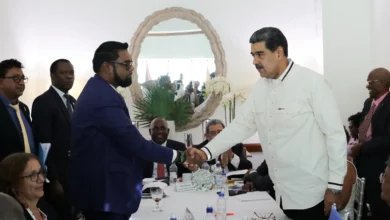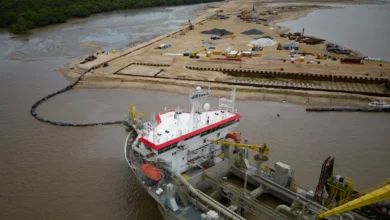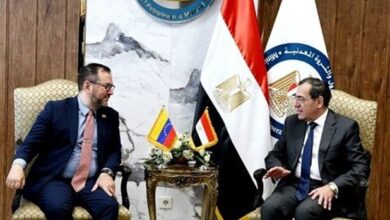Venezuelan President Hugo Chavez died after holding on to power for 14 consecutive years. The exact and real details of the type of cancer that killed him and the real date and time of his death remain a mystery.
However, the biggest mystery currently facing Venezuelans is the future of the country after the absence of the all-powerful figure who dominated Latin American politics for so long.
Hugo Chavez is dead. His charisma and powerful rhetoric have gone with him. Also gone is the factor that allowed him to rise as a prominent political figure: the massive oil revenues of the last decade.
Today, Venezuela is mired in a fiscal crisis similar to that of the mid-1980s, when economic and political turmoil paved the road for Chavez to rise to power in 1998 as a political outsider with a new anti-corruption agenda.
Post-Chavez Venezuela is grappling with high inflation, food shortages, ailing public services and a fiscal deficit of more than 9 percent as a share of the country’s gross domestic product. Oil prices are still at more than US$100 per barrel but they are not increasing. Therefore, the petrodollar lubricant is no longer an option to sustain high levels of social spending.
Chavez’s death means that fresh elections will take place in the near future amid divisions within the top “Chavista” leadership. So, for example, there is the ideological strife between the president’s chosen heir, Vice President Nicolas Maduro — a hardcore socialist supported by the communist Cuban government — and MP Diosdado Cabello, a nationalist military man who resents Cuban intervention in the country.
However, divisions within ruling circles will not necessarily lead to power strife. Most probably, none of the high-ranking members of the government will split from the chosen heir of Chavez. The Chavez government, like all Venezuelan governments since the 1970s, has been characterized by the access and use of oil revenues. Being in power means access to oil wealth. No one within the Chavez camp would jeopardize their economic power by seceding.
Could Venezuela’s democratic opposition, led by Miranda state Governor Henrique Capriles, win in the next elections?
This is most unlikely. Maduro’s government has a high chance of staying in power as its control of oil revenues means a continuation of the clientelistic relationship that impoverished Venezuelans, the majority of the population, have with the government.
The government provides Venezuela’s poor with cash and public services in exchange for political support. The people depend on the government, just like in many oil exporting countries in the Middle East.
But having said this, it should be added that Maduro will not be able to wield power as Chavez did. He lacks both Chavez’s charisma and the sky-high oil revenues of the mid-2000s.
We should not forget here that Chavez’s rule was completely personal. There are no institutions to channel the “Chavista” policies.
The political rigidity imposed by the lack of institutionalization of the Chavez regime would not allow Maduro to take the necessary measures to overcome the country’s economic problems, especially as we take into account the fact that the lubricant of the petrodollar is fading away as oil prices stagnate.
It seems that history repeats itself once again. Chavez came to power amid an economic crisis, and the remnants of the Chavez government and his legacy will fade away amid another one.
Daniel Leon is a Venezuelan visiting professor of international relations at the University of Los Andes in Merida, Venezuela.




